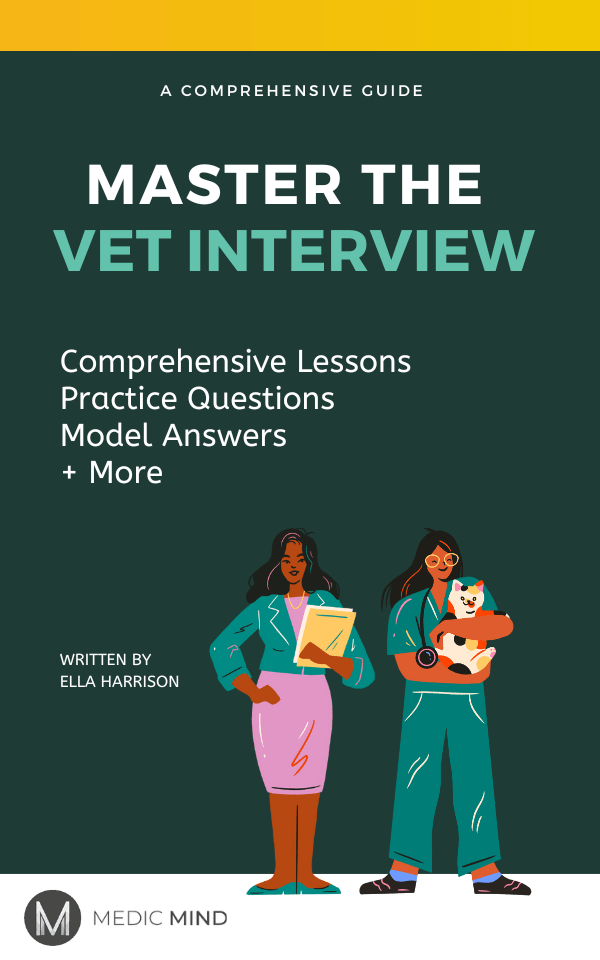Loading...

Veterinary personal statement: The Introduction
Top Tips for Writing your Veterinary Personal Statement Introduction.
Write the Introduction last
It might seem logical to start writing your Veterinary Personal Statement from the beginning, brainstorming introduction starters. However, the introduction is arguably the most difficult paragraph to write. Many students fixate on writing a “killer opening line”, if you overthink your introduction, you many end up procrastinating from tackling the rest of your Veterinary Personal Statement. If you find that you are struggling with crafting an introduction, then it might be better to start writing the other sections (such as work experience or talking about your personal achievements) first.
Make it Personal.
When describing your motivation for studying Veterinary think about what you have learnt about being a vet and then why you want to be a vet. The introduction should be based around your personal motivation to study Veterinary Medicine, so avoid making your reasons generic.
Grip the reader immediately.
The introduction of your Veterinary Personal Statement should be the first thing to grasp the reader’s attention, make it snappy and captivating. This is the difference between your application grabbing someone’s attention and it being like all the others they have read. Use your judgement to assess whether your opening lines are authentic and personal to you.
Show an understanding of Veterinary as a degree and profession.
It is important to demonstrate that you understand what a career in Veterinary Medicine involves. Do not fall into the trap of describing your “love for cuddling animals.” This phrase will make the reader question if you are aware of what the job actually involves (it actually involves quite little of this). There are difficult, messy, and upsetting parts to the job.
The Veterinary Schools Council Website provides excellent information about careers and admissions into Vet School

Common Pitfalls in a Veterinary Personal Statement Introduction
Using Clichés.
Avoid sounding cliché and using phrases such as ‘I love animals and science.’ This is a hackneyed phrase that will not make you stand out. The word “Passion” croups up lots of times in Veterinary Personal Statements. Passion is an emotion… and it does not fit well describing your chosen career as an emotive feeling. Lastly, avoid using the word ‘dream’ and saying, ‘veterinary medicine is my dream’. This may be the case, but if you mention this it doesn’t come across as very professional, and can sound like you’re unaware of the realities of the profession.
Using unnatural language
Using flowery and verbose language will not impress the admissions tutor. By using unnatural language, it immediately looks like you have used a thesaurus to change up your words. A common example of this is using the word ‘relish’ to describe how much you like doing something. You may want to use synonyms to avoid repeating words. Make sure if that you are still using appropriate concise words in their correct context.
Using Sob Stories
You can use personal anecdotes to help explain your reasoning for wanting to study Veterinary Medicine. Be careful not to make these sound too cliché. Steer away from phrases such as ‘When I was 5 I had a pet hamster that became sick and its treatment at the vets is what inspired me to become one’.
Being Generic
Mentioning that you like science can be another common pitfall in Veterinary Personal Statement introductions. Veterinary medicine combines science and a love of working with animals’ hand in hand. Try to be original when explaining why you like the science aspect of the job. What specifically do you enjoy? How have you had experience of veterinary science in your schooling? e.g. dissections in class or learning about the heart can relate a lot to veterinary anatomy.
N.B. – Do not let the fear of sounding too generic put you off from mentioning animals at all in your introduction. If you are studying to be a vet, you should like animals and you should talk about them in your Veterinary Personal Statement. Try to individually explain why you like them, what is it about working with them that you enjoy? Why is studying veterinary medicine a good choice for you given that you like animals?
A Veterinary Personal Statement Introduction Idea
Consider beginning your Veterinary Personal Statement describing a particular ‘ology’ that you have enjoyed learning about or researching. Think about how you can use this to explain why you want to be a vet. For example, you may describe that you have an interest in cardiology, because you’ve seen a cardio case on your Veterinary work experience. Did this inspire you to look into the future of veterinary cardiology?
Check out our other Veterinary Personal Statement guides and feel free to leave any comments or questions below.

Frequently Asked Question
→What should a personal statement introduction include?
When describing your motivation for studying Veterinary think about what you have learnt about being a vet and then why you want to be a vet. The introduction should be based around your personal motivation to study Veterinary Medicine.
→What is a personal statement for vet school?
As part of your UCAS application you must submit a Personal Statement. Your personal statement is an opportunity to demonstrate to the course providers why you want to study veterinary and why you’d make a brilliant student.
→Should I start my personal statement with a quote?
It is advised to avoid using quotes in your personal statement. Not only do quotes take up valuable space but they can be perceived as being cliché making your statement less credible.
→How long should my introduction be in my veterinary personal statement?
The length of your introduction may vary depending on the specific requirements of the programme you are applying for. However, most veterinary personal statement introductions are typically around 100-200 words in length.
→How can I make my introduction stand out in my veterinary personal statement?
To make your introduction stand out in your veterinary personal statement, you should use clear and concise language to convey your message. You should also focus on your personal experiences and qualities that make you a strong candidate for veterinary medicine. Using a creative hook or anecdote can also help to grab the reader’s attention and make your introduction more memorable.
→Why is the introduction of a veterinary personal statement important?
The introduction of a veterinary personal statement is important because it sets the tone for the rest of the statement and grabs the attention of the reader. It is the first opportunity for applicants to make a strong impression and demonstrate their motivation and passion for veterinary medicine.
Related
Related links
MMI interview preparation with our live interactive day and comprehensive feedback
Personalised 1-1 lessons, tailored to your interview preparation
Covering 8 interview topics, with model answers, live MMI analysis and hot topics





Was this article helpful?
Still got a question? Leave a comment
Leave a comment